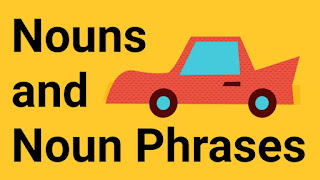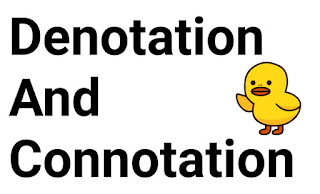NOUNS AND NOUN PHRASES
WHAT IS A NOUN?
A noun gives the name of people, places, things, qualities, ideas, or activities to act as the subject/object of the verb.
Examples: children, sugar, party, kid
WHAT IS A NOUN PHRASE?
A noun phrase is a group of words or a single word that acts as a noun in a phrase or sentence. For example, my best friend is a noun phrase. It could be followed by a verb phrase, for example arrived early at the party. In this case, the party is another noun phrase. A noun phrase can be one word (e.g. john, she, people) or it can be longer, as in the example above. Sometimes, a noun phrase can be more complicated, for example the underlined part of The woman who answered the door was very friendly.
DIFFERENT TYPES OF NOUNS
Exercise 1
Look at the sentences below and decide what type of noun each underlined noun is. Some of the nouns have more than one term to describe them. For example, city is a common, countable noun.
1. London is a city in the UK.
2. The staff here thinks money is important.
3. I can see the pleasure your family gives you.
Proper noun
Often the names of specific places, people and organizations; begin with a capital letter.
Examples: London, John, the Government, the UK, Mount Everest
Common noun
Non-specific things, e.g. there are lots of cities in the world.
Examples: city, money, family, people, dogs, cats
Countable noun
Can be singular or plural; you can have a number of them.
Examples: city, family, men, (an) apple, (three) apples
Uncountable noun
Cannot have a plural form; you cannot have a number of them, e.g. 'I've got two informations' is wrong.
Examples: money, pleasure, freedom, information, air, water, rice
Collective noun
Generally used for a group of things, people, animals and places.
Examples: (the) staff, family, (the) army, furniture, team
Concrete noun
Used for real, physical things that you can touch, see, taste, etc.
Examples: city, money, family, John, Mount Everest, London, staff
Abstract noun
Used for non-physical things that you can't touch, see, taste, etc.
Examples: pleasure, freedom, information, love, power
Some nouns, called compound nouns, are made of more than one word. For example, bus stop is a common, concrete, countable noun made from a noun + a noun. We can form nouns from other parts of speech by adding suffixes: for example, by adding the suffix -ment to the verb advertise we form the noun advertisement. The process of making nouns from other parts of speech is called nominalisation. Nominalisation occurs most commonly with verbs and adjectives. We can also form nouns by adding -ing to a verb (e.g. I like swimming). When a verb with an -ing ending is used as a noun, it is called a gerund.
Exercise 2
Look at the words and write their noun forms. (Do not use gerunds for the verbs)
1. happy (adjective)______
2. long (adjective)______
3. revise (verb)______
4. fly (verb)______
Some common suffixes used in nominalisation are: -ness (happiness), -tion (production), -ion (revision), -ment (advertisement), -ance (dependence). Other forms used for nominalisation appear to be more irregular but there are still patterns. For example:
long - length
long - length
strong - strength
deep - depth
wide - width
fly - flight
high - height
see - sight
live - life
believe - belief
relieve - relief.
Some verbs can also be used as nouns with no changes to their form. For example, love, which is a verb and an abstract noun. In this case, the meaning does not change greatly. I love him means 'I have feelings of great affection for him'; Love is important means 'The feeling of great affection is important'. 😊



Comments
Post a Comment